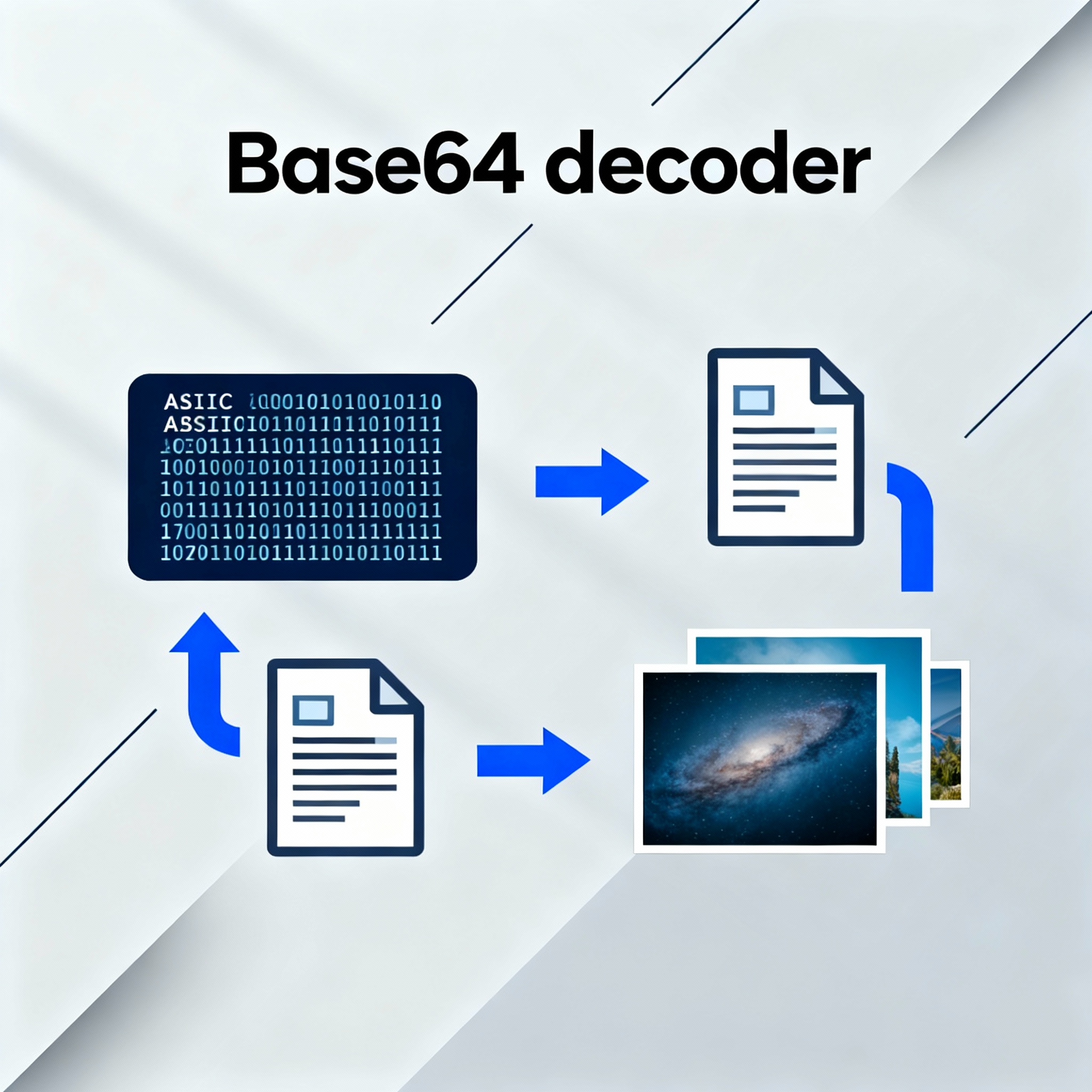
Base64 decoder
Created on 18 October, 2025 • Converter tools • 73 views • 2 minutes read
A Base64 decoder is a software utility or algorithm that converts Base64-encoded text back into its original binary format
Base64 Decoder: Fast Solutions for Data Retrieval and Conversion
What Is a Base64 Decoder?
A Base64 decoder is a software utility or algorithm that converts Base64-encoded text back into its original binary format. Commonly used in web development, email processing, and data transmission, Base64 decoding reverses the process of encoding—restoring readable images, documents, or raw data from text-only representations.
How Does Base64 Decoding Work?
The Decoding Process
Base64 encoding transforms binary data into a set of 64 ASCII characters, making it safe for emails, web forms, and other text-driven protocols. A Base64 decoder simply reverses this process:
- Input: Base64 string (e.g., aGVsbG8=)
- Process: The decoder reassembles the data into its original 8-bit binary groups.
- Output: Restored binary data (like an image, audio file, or readable text)
Why Decoding Is Important
Without decoding, Base64-encoded data remains “locked”—images won’t render, documents can’t be read, and applications may malfunction. The decoder is essential for accessing, displaying, or further processing encoded content.
Key Use Cases for Base64 Decoders
Email Attachments and Web Data
Many email servers use Base64 encoding for file attachments. Before viewing or saving these files, the email client employs a Base64 decoder so images or PDFs display properly.
Web Development and APIs
Web apps frequently transmit images, fonts, or other binary assets as Base64 strings (e.g., in JSON or HTML). Browsers and back-end APIs use decoders to convert these strings back into usable file formats for seamless display and functionality.
Database and Cloud Storage
Some databases store binary files (like documents or images) in Base64 format for easy integration and compatibility. Retrieval and viewing rely on fast, accurate decoding tools to restore original files from encoded strings.
Popular Base64 Decoder Tools and Libraries
- Online Decoders: Free web tools let users paste Base64 code and download the converted result instantly.
- Developer Libraries: Programming languages such as Python, JavaScript, and Java have robust decoding functions—enabling automated file processing, app development, and data transfer.
SEO and Security Considerations
Secure Use and Best Practices
Decoding Base64 does not decrypt sensitive data; it only translates it from ASCII text back to binary. For privacy or protected files, combine Base64 with advanced encryption and always manage access control.
Optimizing Web Performance
Quick decoding ensures fast page loads and efficient data handling, improving the user experience and benefiting SEO rankings. Always verify the source of encoded data to avoid malware or corrupted files.
Conclusion
Base64 decoders are indispensable for restoring images, documents, and files from encoded text. Whether you’re a developer, IT professional, or marketer, understanding how to use Base64 decoding tools helps streamline data handling and enhance your digital workflow.
Popular posts
-
GIF to BMPImage Manipulation tools • 583 views
-
GIF to WEBPImage Manipulation tools • 462 views
-
GIF-to-PNGImage Manipulation tools • 363 views
-
SHA-3/512 generatorConverter tools • 292 views
-
GIF to JPGImage Manipulation tools • 257 views